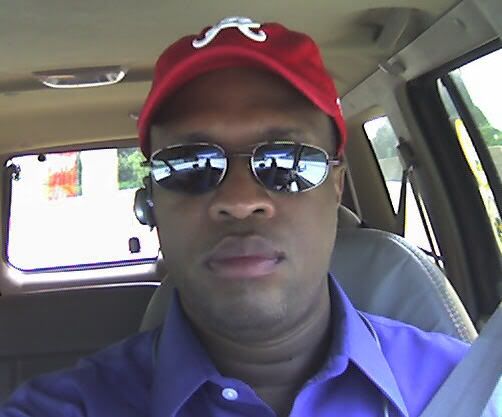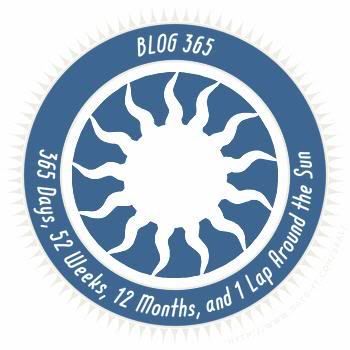 The New York Times reports that Daniel Kibigo said he was there, hiding in the burned cornfields nearby, as the mob gleefully stuffed mattresses in front of the church’s doors and set them on fire. The women inside tried to claw their way out of the church windows as the building burned all the way down, killing up to 50 people inside. This is the state of Kenya as it teeters on the brink of anarchy on the heels of presidential elections last week.
The New York Times reports that Daniel Kibigo said he was there, hiding in the burned cornfields nearby, as the mob gleefully stuffed mattresses in front of the church’s doors and set them on fire. The women inside tried to claw their way out of the church windows as the building burned all the way down, killing up to 50 people inside. This is the state of Kenya as it teeters on the brink of anarchy on the heels of presidential elections last week.Kenya’s president, Mwai Kibaki, declared victory by a narrow margin on Sunday despite widespread evidence of ballot rigging.
“Are we in a civil war? Is this Somalia? Is this Darfur?” said Alfred Mutua, Mr. Kibaki’s spokesman. “Our problem is with some hooligans. And we can take care of it.”
As for the opposition, its most recent proposal was a joint government for three months and then a new election, which the government roundly rejected.
Adding to the incendiary atmosphere, Raila Odinga, the opposition figure who said he was robbed of the presidency, has vowed to go ahead with a million-person rally in the capital, Nairobi, on Thursday. The government has said the rally is illegal, and busloads of police officers in helmets and padded suits have begun to muster downtown.
“We want to appeal directly to the people,” Mr. Odinga said on Wednesday. Many Kenyans are worried the rally will turn into an enormous brawl.
The Bush administration said that Secretary of State Condoleezza Rice was calling both sides to urge them to do everything they could to end the violence, and the United Nations issued a statement on Wednesday saying that Ban Ki-moon, the secretary general, was “concerned with the deteriorating humanitarian situation, as large numbers of people have been displaced by the violence.”
Reuters reports that Attorney General Amos Wako called for an independent probe into Kenya's election after a day of battles between police and protesters disputing the re-election of President Mwai Kibaki.
What follows is a chronology of Kibaki's 5 year presidency:
Dec. 27, 2002 - Former Vice President Kibaki, candidate of the opposition National Rainbow Coalition, wins a presidential election on pledges to deliver a new constitution in 100 days. The victory ends Daniel arap Moi's 24-year rule and the Kenya African National Union's (KANU) four decades in power.
Nov. 22, 2003 - International Monetary Fund (IMF) resumes lending after three-year gap, saying the new government has shown commitment to end corruption.
Dec. 21 - Moi is granted immunity from prosecution on corruption charges.
March 15, 2004 - Government withdraws from a conference convened to write a new constitution after most delegates vote to trim presidential powers.
Feb. 7, 2005 - John Githongo quits as Kenya's first anti-corruption adviser, a blow to the fight against graft.
July 22 - Parliament votes to keep a strong presidency in a proposed new constitution. The vote leads to deepening divisions in the ruling coalition and triggers rioting in the capital.
Nov. 22 - Kibaki suffers humiliating defeat when voters reject the new constitution in a referendum; he fires his government the next day.
Dec. 9 - Twenty-six of 29 ministers are finally sworn in after Kibaki's struggle to form a new cabinet. Three refuse to appear although two of them later reverse that decision.
Feb. 1, 2006 - Finance Minister David Mwiraria resigns over a multi-million dollar corruption scandal, says he is innocent.
June 3 - Key ministers from the ruling coalition break away to form a new party, the National Rainbow Coalition-Kenya.
Aug. 22 - Government agrees to opposition calls for parts of the constitution to be amended ahead of 2007 elections.
Sept. 16, 2007 - Kibaki announces candidacy on the ticket of Party of National Unity, created as his re-election vehicle.Dec. 27 - Voters elect a new president and parliament. Most opinion polls give a lead to Kibaki's opposition rival Raila Odinga of the Orange Democratic Movement.
Dec. 30 - Kibaki wins close-run election by the narrow margin of 230,000 votes and is hurriedly sworn in.
Dec. 31 - The government floods the streets with security forces and keeps a ban on live TV broadcasts after riots convulse the nation.
Jan. 1, 2008 - A mob torches a church, killing about 30 villagers.
Jan. 2 - President Kibaki's government accuses rival Raila Odinga's backers of "ethnic cleansing" as the death toll from tribal violence reaches some 300.
Jan. 3 - Attorney General Amos Wako calls for an independent probe into the election. After hours of police clashes with thousands of protesters, the opposition call off a planned demonstration.
Read the entire New York Times article here.
Read the entire Reuters article here.
plez sez: over 300 people have died as a result of violence in formerly peaceful country of Kenya. i learned about this country on the African continent as a youngster in the 3rd grade; i remember that we learned a few phrases in Swahili and found the country on the map. since i was the only Black kid in my class, to this day, i feel that my teacher, ms. karpinsky, took great pride in teaching the class (and me) positive lessons about the people of Africa.
fast forward close to 40 years and the country is on the brink of civil war and genocide. Kenya boasts of being a democracy with an executive, legislative, and judicial branch of a national government; a few archaic presidential election rules aside, this election cycle seems to hinge on accusations of corruption of the electoral process and sour grapes. the loser in the election, Raila Odinga, had a hand in making proposed changes to the constitution that would weaken the office of the president. after Odinga lost the election last week, the country erupted in violence and bloodshed.
there was outrage and indignation when george bush made off with TWO presidential elections - in 2000 in florida and in 2004 in ohio - but we never gravitated to such depths of violence... we expressed our outrage via talk radio and blogs! in light of Barack Obama's win in Iowa on yesterday, i wonder if violence will be used to derail his ascent to the white house (a la Robert Kennedy)? like Kenya, when rioting and violence erupts in the US, it is usually confined to areas of the country which are ill-equipped to recover from it: poor, Black communities (recent memory brings los angeles (watts), detroit, and newark to mind)!
plezWorld hopes that the United Nations will do its job and finally intervene in a crisis situation before more bloodshed. it is probably too late to "fix" the damage done by this election, but it is obvious that Kenya would benefit from some assistance from the world community in correcting its voting irregularities and finally creating a constitution that will work for the betterment of this once peaceful country.













No comments:
Post a Comment